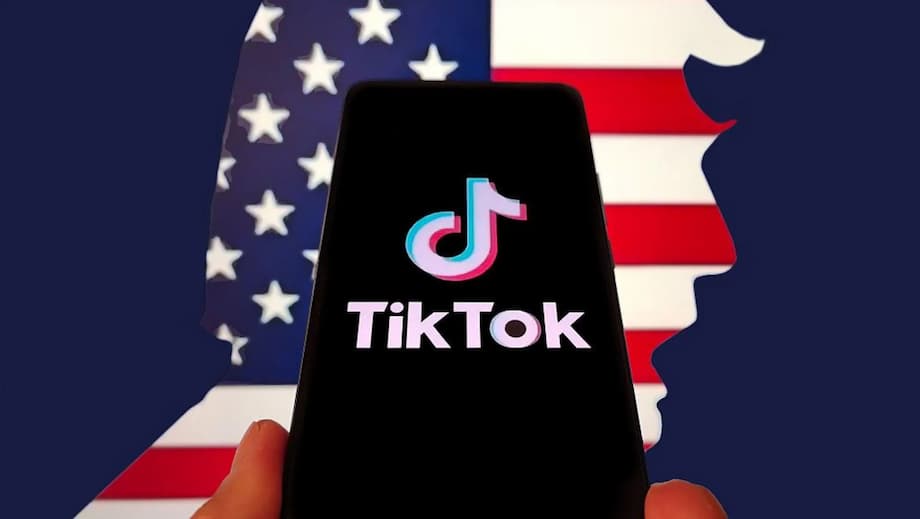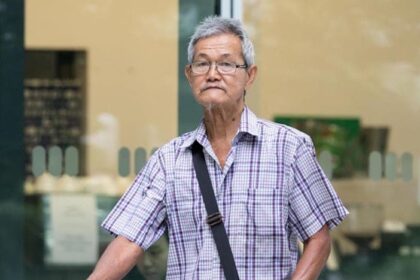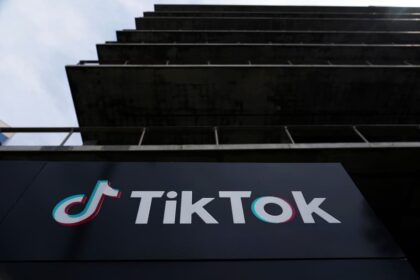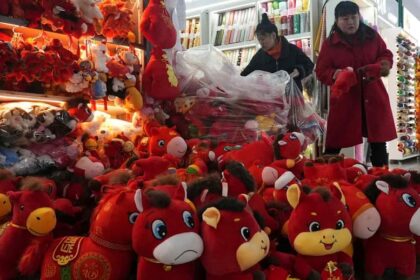Why this deal matters now
A long running fight over TikTok in the United States has narrowed to one critical choice. Keep the app available to 170 million American users while moving control of its US business to American owners, or force a shutdown if national security questions cannot be answered. A new framework agreed by senior officials from Washington and Beijing aims to strike a middle course. The plan would put a US led consortium in charge of TikTok in the United States, while ByteDance in Beijing would license the recommendation algorithm that powers the app’s feed. Presidents Donald Trump and Xi Jinping are slated to speak to seal, or reshape, the deal. The outcome could set a template for how the world’s two largest economies deal with software, data, and control of influential platforms.
The stakes are high. A 2024 US law requires TikTok’s China based owner to divest the US business or face a ban. The Supreme Court upheld the law. The deadline has been extended several times, with the current date in December. The planned agreement would avert an immediate shutdown and preserve a popular platform that many creators, small businesses, and political campaigns now treat as essential. It would also test whether licensing core technology from China can satisfy US demands for security and independence.
Speaking to reporters on Friday, President Donald Trump said a signing process could begin soon and emphasized American oversight if the plan holds.
“We look forward to getting that deal closed,” he said, adding that the United States would have “very tight control of the app.”
What is in the framework
The emerging structure reflects three priorities. Move ownership and governance of the US service to American hands, ring fence US user data on American soil, and keep TikTok’s signature experience intact by licensing the algorithm from ByteDance instead of selling it outright. The agreement would also give US officials a clearer line of sight into how the platform operates inside the country.
Ownership and governance
People familiar with the talks describe a new company for TikTok in the United States with a majority of shares held by American investors. ByteDance’s stake would be reduced below a fifth to comply with the law. A board dominated by US citizens would oversee the company, and one director would be designated by the US government. Names floated for the investor group include Oracle and several large venture firms. Existing non Chinese investors in ByteDance would be counted on the US side of the ledger.
Data security provisions
Under the plan, all US user data would be stored on infrastructure in the United States. Oracle would continue to host and monitor the platform’s US information and provide safeguards against suspicious activity. Chinese officials have spoken of an entrusted operation model for US user data and content security, which points to technical separation between the American service and engineering resources in China.
These measures would be paired with audits, logging, and access controls that keep engineers in China from touching American information. The company would be expected to maintain separate development and security teams for the US service, and to preserve records that show who accessed data, when, and why. The details will decide how credible that separation becomes in practice.
The algorithm question
TikTok’s ranking algorithm is the engine behind the app’s popularity. It learns what each person likes by measuring watch time, swipes, comments, shares, and thousands of tiny interactions, then serves a stream of short videos designed to keep users engaged. Many have tried to copy that feel, yet TikTok’s feed remains unusually good at predicting what will hold attention. That is why the algorithm has been the hardest part of any deal.
What licensing means
China restricts export of advanced recommendation and artificial intelligence technology. Those rules have blocked a sale of TikTok’s core code. Licensing is a compromise. A US company would get legal permission to use the algorithm in the United States. ByteDance would keep ownership and, likely, a say over updates, documentation, and support. Government review in Beijing would cover any sharing of code, models, or training methods. In plain terms, the United States would rent the secret sauce rather than buy it.
There are scenarios in which engineers in the United States rebuild parts of the ranking system to reduce reliance on Beijing. Reports also describe a US specific version of the app running on a more limited software stack. That approach could protect sensitive components in China but risks a less polished experience and slower improvement if the American team has to replace modules that were not transferred under the license.
How a split algorithm could still shape the feed
Even with clean data separation, a licensed algorithm can shape what Americans see through design decisions embedded in code and model weights. That includes how the system balances freshness and personalization, how it treats borderline content, and how it responds to government requests. If updates originate in China, the United States will need a way to review changes before deployment. Regular security reviews, reproducible builds, and a local update gate could mitigate this. Without that, oversight becomes a paper promise rather than a technical control.
What Beijing gains
The plan lets China claim a strategic win. ByteDance would keep the algorithm secret and continue to earn from licensing it to a US company. Beijing can say it exported advanced technology on its own terms and protected a prized national champion. The deal would also present a model that other Chinese firms could use to enter or remain in sensitive foreign markets through licensing rather than divestment.
ByteDance would retain brand control and a significant minority stake, while the TikTok name, look, and behavior remain familiar to users in the United States. In political terms, China can present the outcome as a commercial solution consistent with its laws. That framing matters as the two governments also discuss tariffs, export rules, and high level meetings.
A US adviser close to the negotiations described the balance plainly.
“After all this, China keeps the algorithm.”
What Washington gets
The United States would secure local control of data, a board that can be held accountable, and a clear legal regime for audits and enforcement. The app stays available to millions of voters and small businesses, which eases the political cost of a shutdown. A licensing structure also buys time for a longer rebuild of any components that national security officials later flag for removal or replacement.
US Treasury Secretary Scott Bessent, who has been central to the talks, said the administration sought an outcome that met security goals while allowing a commercial deal to go forward.
“We were very focused on TikTok and making sure that it was a deal that is fair for the Chinese and completely respects US national security concerns, and that is the deal we reached.”
There are also concrete operational gains. Oracle would continue to store US data and serve as a watchman for anomalous access. A government designated director on the board would provide an extra conduit for oversight. Clearer accountability chains could help investigators answer who changed what, when, and under whose authority.
Legal and political hurdles
Even a polished framework faces a wall of law and politics. Congress passed a statute in 2024 that pressures ByteDance to divest in the United States. The Supreme Court upheld the law. The administration has extended the deadline several times, now into December, to leave room for a negotiated fix. Lawmakers on the House committee that focuses on China have warned that any ongoing reliance on a ByteDance algorithm may violate the spirit of the law. Regulators will also test the plan against the requirement that a foreign adversary cannot control a platform that reaches a large share of US citizens.
Representative John Moolenaar, who chairs the House panel on the Chinese Communist Party, outlined the concern.
“I am concerned the reported licensing deal may involve ongoing reliance by the new TikTok on a ByteDance algorithm that could allow continued CCP control or influence.”
The deal still needs corporate approvals, including from ByteDance. It would likely be reviewed by US national security officials and could run into new conditions before closing. If Congress decides the framework falls short of the law, lawmakers could try to block it or require deeper changes. State attorneys general may also look at consumer protection questions tied to data handling and content moderation in a split architecture.
Open questions that could decide the outcome
Several practical choices will determine whether the plan improves security and preserves the product Americans know.
- Who controls updates to the ranking algorithm, and can a US gate pause or reject a change before it goes live
- Where models are trained and tuned, and whether training data from US users ever leaves American soil
- How code is reviewed, including whether US engineers have full access to source code, model weights, and documentation
- What happens to cross border engineering support, bug fixes, and emergency patches when the US app diverges from the global one
- How user data is logged, accessed, and audited, and whether detailed access trails are preserved for investigators
- Who sets the rules for content moderation, civic integrity, and recommendation policies in the United States
- How revenue sharing works under the license and whether that gives ByteDance a continuing lever over the US entity
Will the US app feel different
Users may not notice a dramatic change on day one. The interface and creator communities will remain familiar. Over time, differences could appear if the US service runs on a more limited software base or if engineers need to backfill components that were not licensed. Ranking might feel a bit less dynamic during a transition while the US team retrains models with local data.
Content diversity could shift as well. A US specific feed might tilt more toward domestic creators if discovery depends on US training data and US content policies. Ad targeting could recalibrate as the system relearns audience interests within a more isolated data pool. Performance hiccups are possible if update pipelines get slower or if product changes must pass through new review gates.
What it means for tech and trade
This framework is more than a single corporate fix. It sketches a new playbook for how rival powers can keep widely used apps available while pursuing security, privacy, and political goals. The central idea is a swap. Ownership and data move under local oversight, yet the most valuable code remains with the original owner under a license. That approach could appear in future deals involving Chinese cloud services, e commerce platforms, or recommendation systems, and it could also inspire other governments to demand similar terms from American firms abroad.
Trade and geopolitics sit just offstage. The two presidents plan to speak and may meet later at Asia Pacific Economic Cooperation (Apec). A TikTok agreement could lower the temperature ahead of broader talks on tariffs, export controls, and market access. The risk is that licensing becomes a new fault line, with disputes over updates, audit rights, and compliance spilling into diplomatic meetings. The reward, if the plan holds, is a working example that shows complex technology disputes can be managed without taking popular apps away from millions of users.
Key Points
- US and Chinese officials outlined a framework that keeps TikTok available in the United States while shifting ownership and governance to an American led entity
- ByteDance would license the recommendation algorithm to the US company rather than sell it, keeping core technology in China
- Oracle would continue to store all US user data on American infrastructure and monitor for suspicious activity
- A US dominated board, including a government designated director, would oversee the new TikTok company in the United States
- The 2024 law requiring divestment remains a hurdle, and Congress could still oppose a deal that relies on a ByteDance algorithm
- Security experts want clear answers on update control, training locations, audit access, and cross border engineering support
- Beijing gains a narrative win by exporting technology on its terms and preserving a valuable state protected asset
- Washington gains local control of data, clear accountability, and time to replace sensitive components if needed
- Users may see only minor changes at first, with possible differences in feed behavior as the US app evolves on a separate stack
- The licensing model could become a template for future agreements that balance market access with national security












